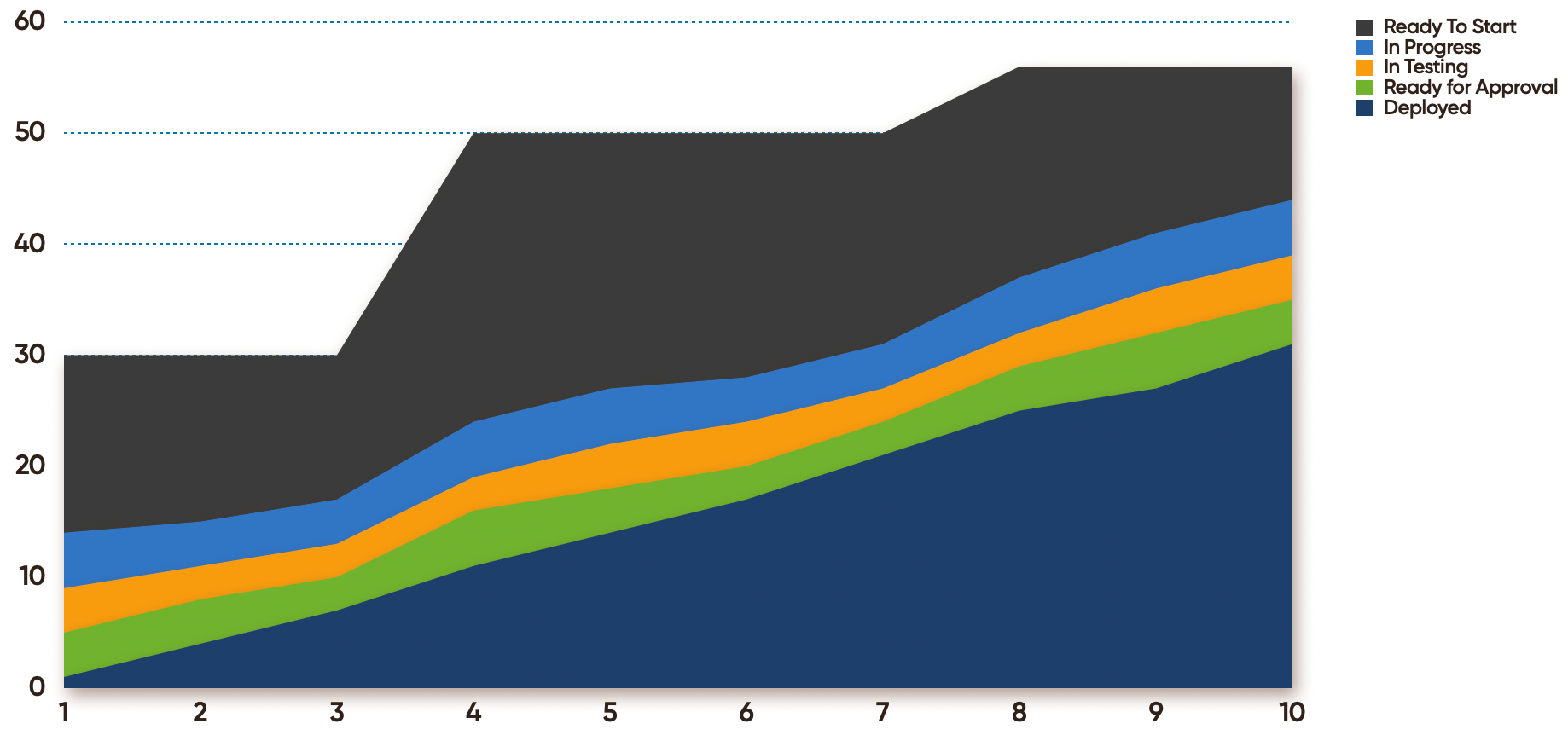When we talk about making the work visible, there are two key aspects - what is the work and how is the work progressing. In this article, we are going to focus on how the work is progressing. Specifically, we are going to look at Cumulative Flow Diagrams as a means of visualizing work progress.
Beginning a New Book
My plan is to write a series of blog posts all related to the behaviors framework. Some of them will be about a specific behavior. Some of them will be about tools or techniques that help teams express one or more of the behaviors. Some of them will be my own experiences. And some will be damn near complete fiction.
Increase the value of your stand-ups with different questions.
I’ve recently started working with some teams who have elected to use the classic three questions during their stand-ups - “What did you do yesterday?”, “What will you do today?”, and “Are there any impediments in your way?”
I’ve been talking about and advocating for different stand-up formats for quite some time. I, frankly, think the three questions are too focused on individual activity and lack focus on group progress.
If you like the format of three questions, may I suggest you try some different questions?
Pair Programming - A Skills-Based Approach
Metrics and Scrum
So there we were, at an agile conference. Well, not at the conference exactly. But at a bar very near to an agile conference.
A few patrons were talking agile stuff - like they do. And someone, as evidence in support of their stance that all metrics are evil, used the “But the Scrum Guide”, defense.
“But the Scrum Guide doesn’t prescribe any metrics. As a matter of fact, the word metric is not in the Scrum Guide. Not once.”
I found this claim dubious, so I checked it out.
All agile stand-up meetings must...
Agile is "the best"!
I was asked to answer the Quora question, “Why is the Agile model the best”.
I’m not comfortable with the notion of “best”. Maybe “better”, “leading”, or “fit for purpose”. But most of this is so contextual and ephemeral, I tend to avoid the label “best”. That nit-pick aside…
Agility focuses on working in teams together with the customer to deliver high-quality working software in rapid cycles.
Deadlines and Agility
I was recently asked to engage in a debate over whether or not there are deadlines in agile. There were a few folks involved in the debate and the predominant perspective seemed to be that true agile efforts have no external deadlines - all deadlines are self-imposed by the team in the form of an iteration commitment or a scope negotiation with the Product Owner.
This is bunk.
Shippable Stories
Why Manage WIP?
Having too much Work in Process, also known as Work in Progress (WIP), is a remarkably common issue. In my experience, management often encourages this behavior. I don’t know if it is the notion that we will get more done if we work on more things simultaneously. Or perhaps there is a fear we won’t get enough things done unless we work on several of them at once.
Measuring Agile Efficiency
This blog post is inspired by another Quora question; “What metrics do you use to track Agile Efficiency?”
To begin with, I want to state that if I had to choose between efficient and effective, I’d choose effective. Efficiency is often about output (how many widgets per hour), whereas Effectiveness is often about outcome (was the purpose consistently met).
Agility is about responding to change. Efficiency is achieved by driving out variation. An over-focus on efficiency will lead down a path of standardization and control, making for a less agile system.
That said, given the question was specifically about agile efficiency, I’d look at a few things - Throughput, Cycle Time, Deployment Frequency, and Mean Time to Recovery.
Refactor - You Keep Using That Word…
I stumbled upon a thread recently where the question was posed, “What are some common mistakes when refactoring code?”
The answers were interesting. The more I read, the more I realized that folks weren’t talking about the same thing. They were all saying “refactor”, but many were describing scenarios that sounded more like a rewrite rather than a refactor. This is not uncommon. I’ve encountered this on multiple forums, in slack discussions, in blog posts, and in actual human to human conversation (it happens).











